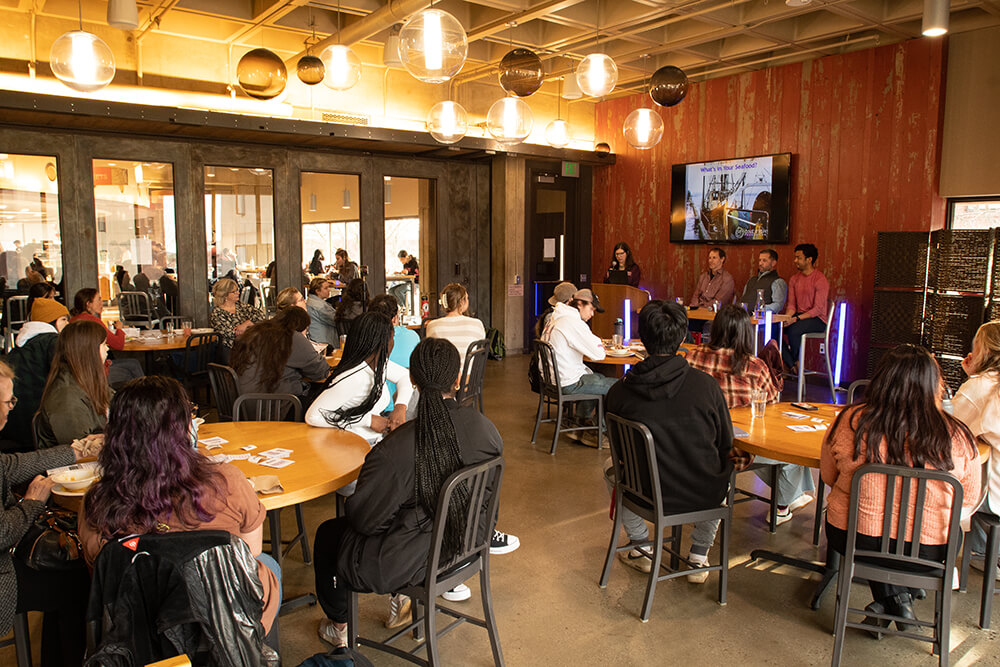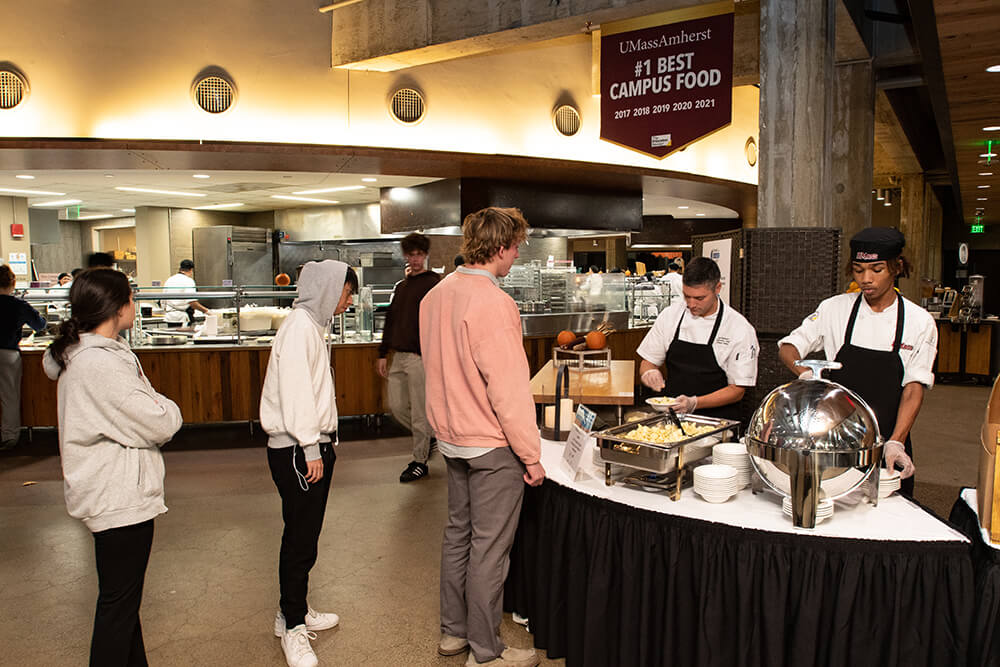Low Carbon Dining
Dining With Purpose

With global food production accounting for nearly 1/3 of all greenhouse gas emissions, our food choices play a critical role in the climate crisis.
UMass Dining Sustainability recognizes that low carbon dining options are a highly impactful way to reduce emissions and mitigate climate change.
How We Support Low Carbon Dining on Campus

Dining for a Cooler Planet
Learn how innovative practices of food production, preparation and consumption are helping reduce and even combat carbon emissions

Carbon Rating on the Menu
Learn how the A-E Carbon Rating on the Menu system is a tool for everyday climate action
Low Carbon Dining
Low-carbon dining refers to making food choices that have low greenhouse gas emissions associated with their life cycle. Some examples of low-carbon foods are: nuts, soy products, local vegetables, and dairy alternatives. Some foods on the high end of carbon impact are beef, lamb, cheese, chocolate, and coffee.
The UMass Dining Sustainability team is highlighting low carbon dining options because students have expressed that the climate crisis informs their decision making and want to reduce their carbon footprint. Since global food production accounts for nearly 1/3 of all greenhouse gas emissions, switching to low-carbon dining is a highly impactful way to reduce greenhouse gas emissions and mitigate climate change.

Dishes that are plant-forward and integrate lower-impact protein choices are featured on our menus every day. Find daily menus online or on the UMass Dining app.

Our award-winning chefs creatively utilize foods with low carbon impacts like tofu, nuts, vegetables, and legumes and minimize foods with high carbon impacts like beef, lamb, cheeses and chocolate.

Over 75% of UMass students believe that it is important for them to reduce their carbon footprint and that their food choices impact the environment. Our students drive UMass Dining to offer climate-smart dining choices.

Transporting ingredients and food products accounts for nearly one-fifth of all carbon emissions in the food system. By promoting local and seasonal menus and purchasing we are helping reduce food miles and emissions associated with transportation.
